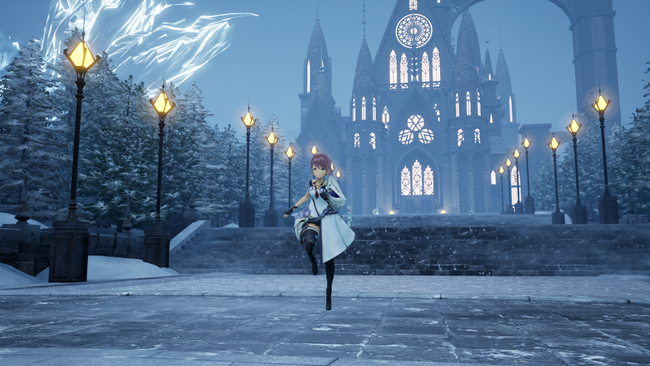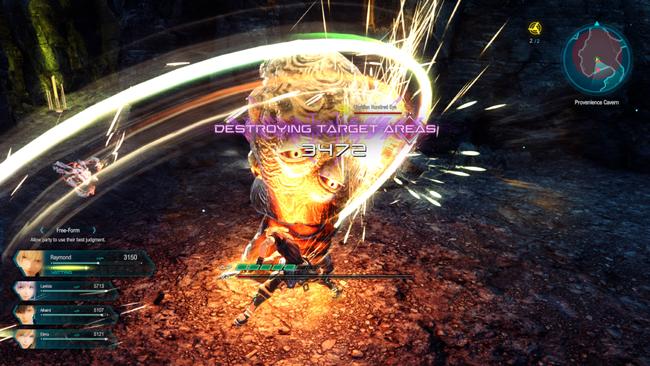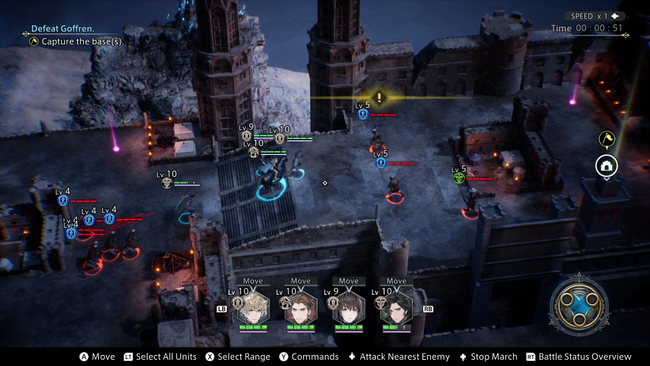
Failure or not, Square Enix's 2022 release calendar was a breath of fresh air
2022 was a landmark year for RPGs; between Elden Ring, Xenoblade 3, multiple Pokemon titles, and more, you’d be hard-pressed to deny it. But it wasn’t just those larger releases that made the year great; it was the smaller, lower budget releases that dotted the calendar, and where Square Enix especially delivered in spades.
How many of Square Enix’s 2022 releases do you remember? There were a ton; to the point where we’re only just now past the glut of it all. From the last few months of the year until Paranormasight’s release just last week, Square Enix was averaging nearly a game a week. It was hard for us to keep up with everything they released, let alone for anyone else! It’s no surprise that Square Enix confirmed that many of these same smaller titles underperformed.

To be blunt; it’s nobody but Square’s own fault that their games struggled to do numbers. If you release so many niche titles in a short timeframe - not giving them time to breathe, and not putting enough effort forth for marketing them, of course they’d flounder on the market. Did the market really need two Voice of Cards games, released in the same year, regardless of their quality? Or what about DioField Chronicle releasing only a few short months before Tactics Ogre Reborn; a new IP in a similar sub-genre going up against a remaster of a beloved classic? Of course most players would prioritize the latter.
What makes the situation so frustrating is how so many of these games offered something truly different in the genre, and yet due to so many titles released bunched together, it was very easy for what otherwise might have been excellent RPGs quickly got smothered by releases in the weeks or months to follow.
Harvestella was and is an excellent take on the farming sim genre, taking things a step further than Rune Factory’s take on turning things into an RPG, by making the RPG elements the most prevalent parts of the experience; with the farming offering more of a respite from the action, and a means to gain resources for trawling the game’s dungeons and challenging their bosses. Star Ocean: The Divine Force - despite by no means being an exceptional game, was a welcome return to form for the series, and offered an endearing cast of characters.

Titles released earlier in the year, outside of the whirlwind of launches during the Fall generally found more success; Triangle Strategy and Live-A-Live both benefited from both the earlier release timeframe, as well as the marketing boost that came from originally releasing exclusively to the Nintendo Switch. Stranger of Paradise: Final Fantasy Origin might not have sold as much as Square Enix probably hoped, but it still ended up garnering a fanbase - and a discussion! - which many of the titles that were released later in the year lacked.
Laying it all out on the table, it’s frankly absurd exactly how many games Square Enix released last year, but what’s equally ridiculous is how easily the company let some of their most unique releases be forgotten. How many people actually played The Centennial Case: A Shijima Story? Josh loved it when he had the chance to play it; but there was hardly a peep about it when it launched, and the same could be said for most of Square Enix’s catalog outside of the heavy-hitters like Crisis Core - Final Fantasy VII Reunion.

It’s a genuine shame because even if those smaller releases weren’t a slam dunk, polished hit like Live-A-Live, Triangle Strategy, Crisis Core and Tactics Ogre - they still offered something unique, something interesting, an experience you would’ve been hard-pressed to find anywhere else. I’m still making my way through Harvestella, and I’ve still yet to fully sink my teeth into Romancing SaGa: Minstrel Song Remastered - but even beyond those titles and the others I’ve played, there’s plenty to love about almost every title the company released last year.
I wouldn’t quite go as far as to say that Square Enix failed those games; but on the same token, I won’t disagree with that assertion either. There was no reason for Square Enix to pack so many of their titles so closely together, ultimately cannibalizing their own sales in the process. Yet even if it was a mistake, it’s similarly hard to deny that the same deluge of smaller releases didn’t contribute to making 2022 memorable, for good or ill. When I look back on 2022 I’ll certainly remember the heavy-hitter releases, but even more than that I’ll remember the Valkyrie Elysiums, the DioField Chronicles and the Harvestellas that dominated the latter half of the year.